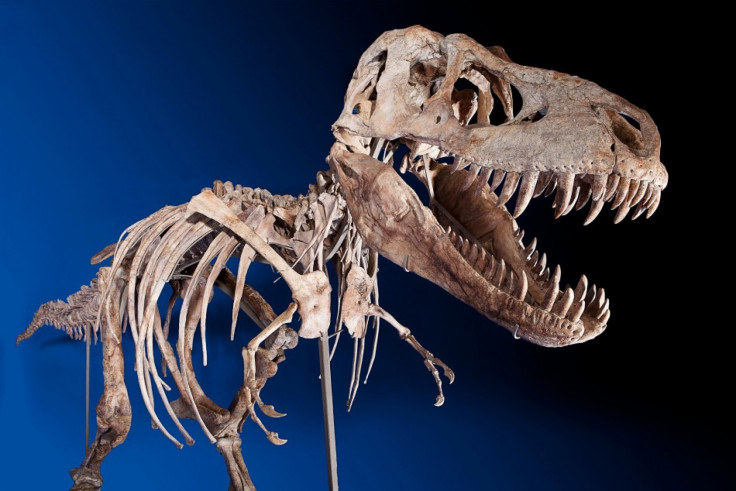Meteorite Impact Rendered Dinosaurs Extinct Millions of Years Sooner Than Previously Thought

A meteor’s flight across Russia, and word that the DA14 asteroid would narrowly avoid hitting earth Friday, has coincided with the publication of new evidence indicating the meteorite that hit Earth millions of years ago wiped out the dinosaurs much faster than originally thought.
When an asteroid slammed into the Yucatan Peninsula roughly 66 million years ago, it triggered a dramatic climate change. Temperatures across the globe began lowering fast enough to render the entire dinosaur population extinct in just 33,000 years after the meteor made impact. That number may seem high but, as Reuters reported, it’s a paltry 11 percent of the 300,000-year time span dinosaurs were previously thought to have survived.
The 50-foot-long meteor that rocketed across the Chelyabinsk region of Russia left 1,000 people injured. It shook buildings, collapsed a roof, and sparked an energy blast of 470 kilotons. The sonic boom was audible for miles.
What the meteor did not do, though, is leave a six-mile crater in the ground off the coast of what is now Mexico. The crater -- left 66 million years ago -- is still visible and includes evidence that the meteorite melted rock upon impact, effectively filling the earth’s atmosphere with molten debris and raining fire across the globe.
Remnants of the volcanic ash and iridium-rich dust can still be found today. Iridium is a silvery white element that’s classified as the most corrosion-resistant metal. It’s prevalence, combined with other evidence, indicated to scientists that the theory of dinosaurs going extinct before the meteorite hit was flawed.
“Our work basically puts a nail in that coffin," geologist Paul Renne of the University of California Berkeley told Reuters. “I realized there was a lot of room for improvement. Even though many people had locked in their opinions that the impact and the extinctions were synchronous or not, they were basically ignoring the existing data.”
The research -- which took three years to compile, according to Forbes -- found the meteorite was the last straw for dinosaurs, who had weathered a prior shift in the earth’s temperature.
“When I got started in the field, the error bars on these events were plus or minus a million years,” said paleontologist William Clemens, who was not directly involved in the study. “It’s an exciting time right now, a lot of which we can attribute to the work that Paul and his colleagues are doing in refining the precision of the time scale with which we work. This allows us to integrate what we see from the fossil record with data on climate change and changes in flora and fauna that we see around us today.”
© Copyright IBTimes 2024. All rights reserved.





















